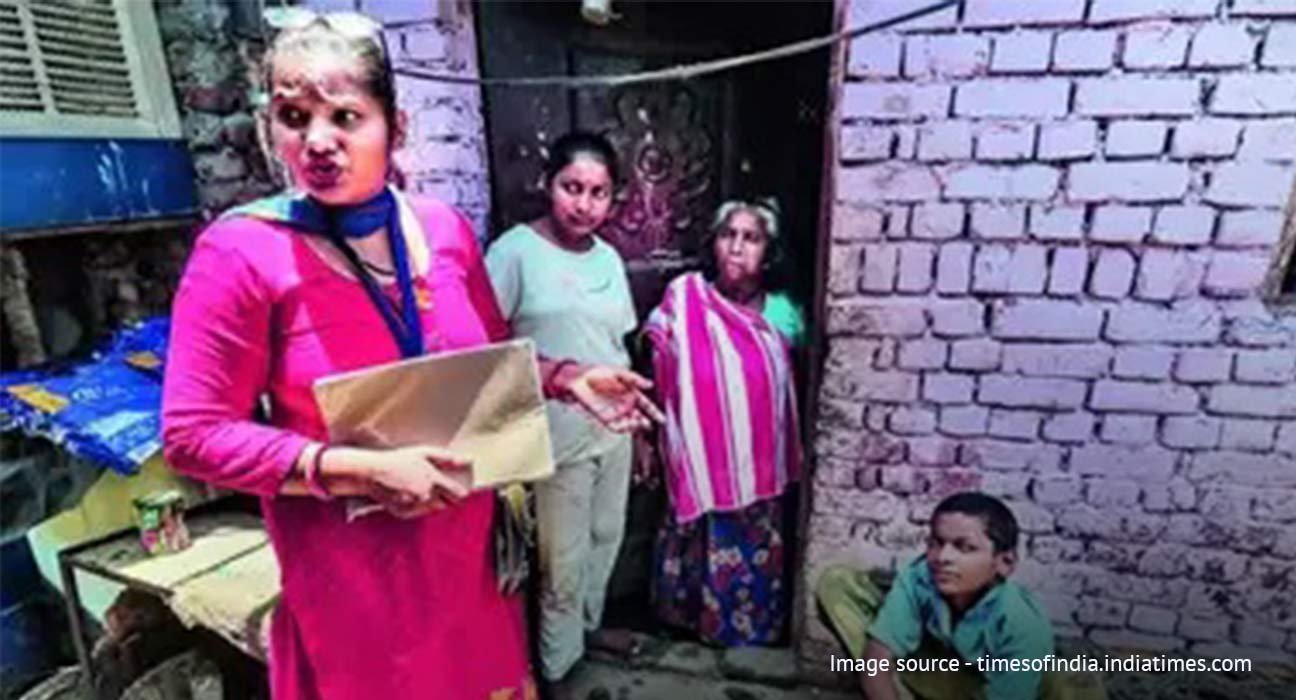Rajo, a toy stall owner living in Delhi was facing clinical depression and anxiety. ASHA workers reached out to her during the COVID period and and now continuously helping them to cope with their mental issues. Over the past two years, ASHA workers have screened over 4,000 people and recommended 1,300 counsellors in government hospitals.
Rajo is a humble person, who keeps a smile on her face. Her stall with cute soft toys always paved the way for a smile for her as well as for all the children and parents who left her stall.
But life took turns and changed her life into lethargic, mood swings and barely eating and talking. And she started to detest going out and stopped socialising. Lakshmi, then, on the advice of her neighbour, who worked in ASHA, Rajo took a counselling session from a therapist and was subsequently diagnosed with clinical depression and Anxiety attacks.
Several sessions later, she found a stabilised mood and reduced mental issues. Then she started her beautiful journey during COVID-19, spreading the word on vaccination and bridging the gap of taking mental health care in rural areas. Rajo herself quoted that, “ My days were dark. I didn’t want to work or eat. I did not want to talk to anyone.” As well she helped in the delivery process of her granddaughter. The ASHA workers screen some questions around the rural areas. Every day in the Rajo case, Lakshmi has assessed her with questions for which she was trained as well. Rajo scored 10 which indicated she needed professional help.
There are respective markings of 5,10,15 and 20 which are classified as mild, moderate, moderately severe and severe depression.
In rural areas, not only physical health is degrading well mental health is at its lowest and urgently needs mental health intervention. Rashmi is a coordinator for ASHA workers in the city and said they are trained by doctors as well. She added that Besides, doctors also conduct a session for them once every month so that they can screen people easily. They have been educated about symptoms such as anger, insomnia, depression and indicators of suicidal tendencies. They are also trained to convince patients to see the doctors. They have been given questionnaires and manuals to identify mental health patients. She said Persuading a person to take therapies and treatment is harder than identifying the symptoms of depression and anxiety.
Doctors at the health department said detection of mental health problems in regular screening was helping them reach people in villages who wouldn’t otherwise have treated this as something for which one goes to a trained professional. Thus, this step is crucial and effective for people living in rural as well as urban people. According to a national mental health survey in 2015-2016, 83% of those with mental health problems do not receive any treatment. This also indicated that this rate is 3% much higher in urban than rural areas. There is a lack of awareness in rural areas when it comes to mental health issues.
Dr Shuchin Bajaj founder of the Ujala Cygnus Group of hospitals said, “Partnerships should be established with local care providers, including private practitioners to expand mental health service in India. This collaboration can involve sharing resources, providing training and coordinating referrals and follow-up care.













Leave feedback about this